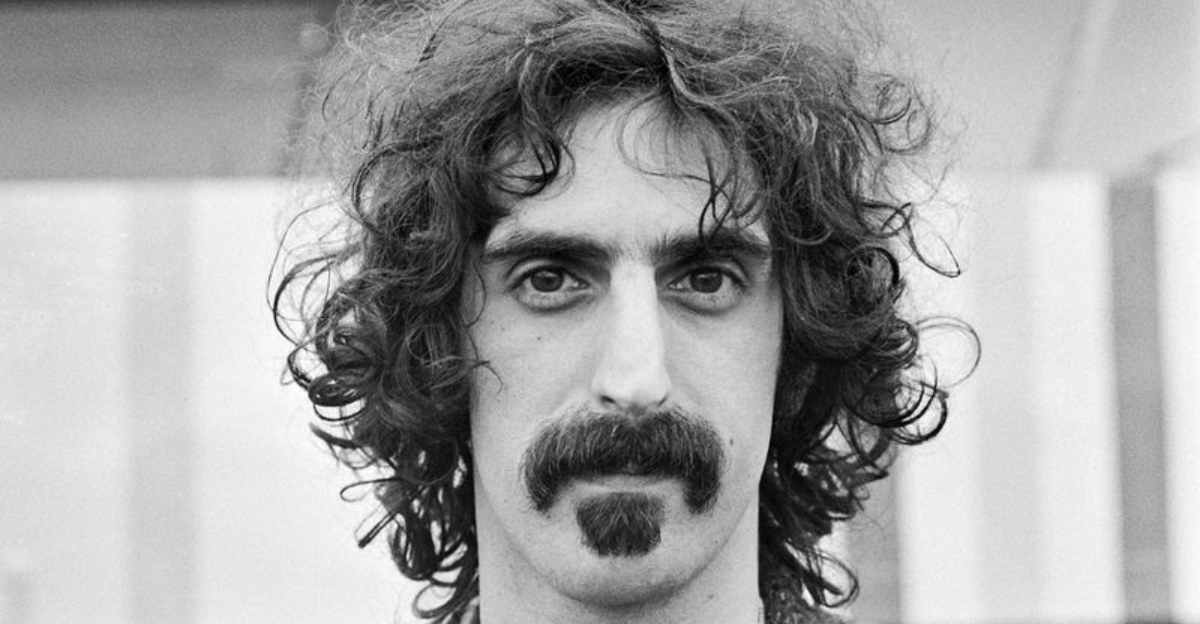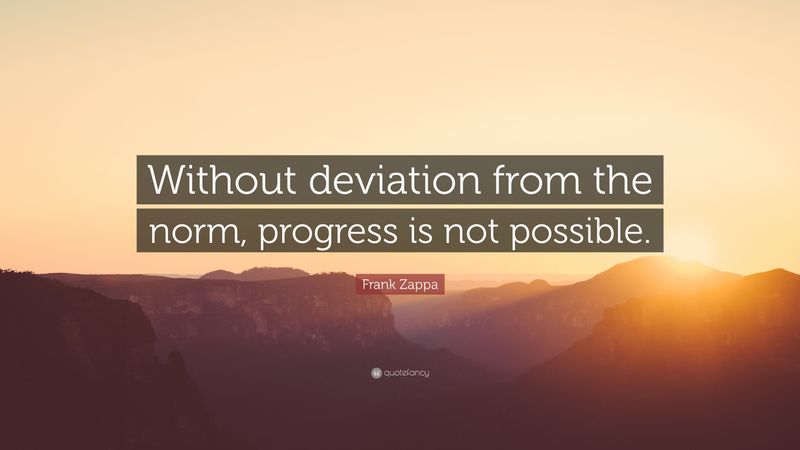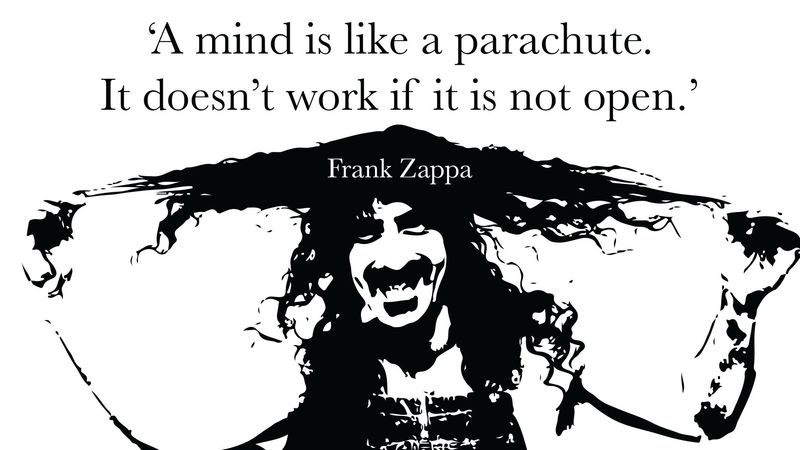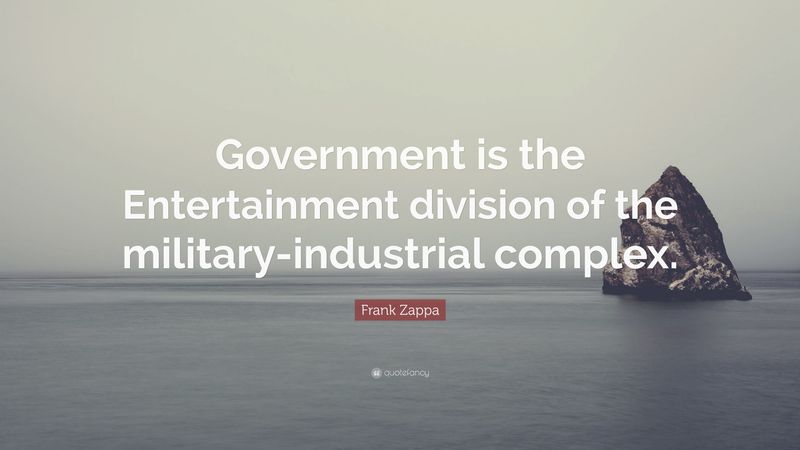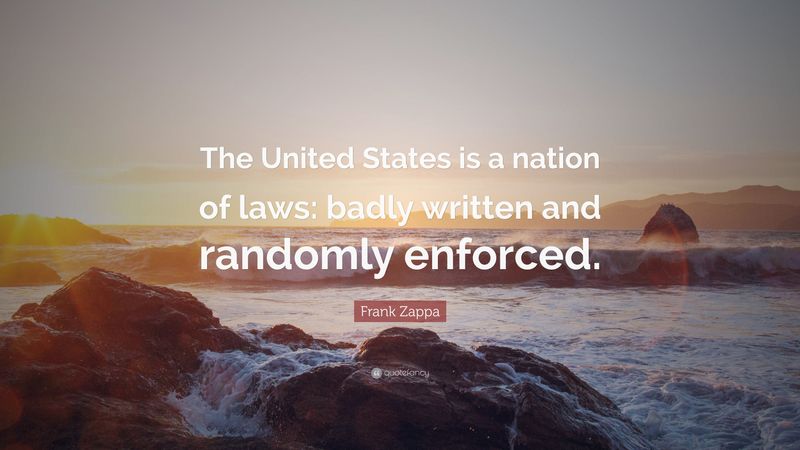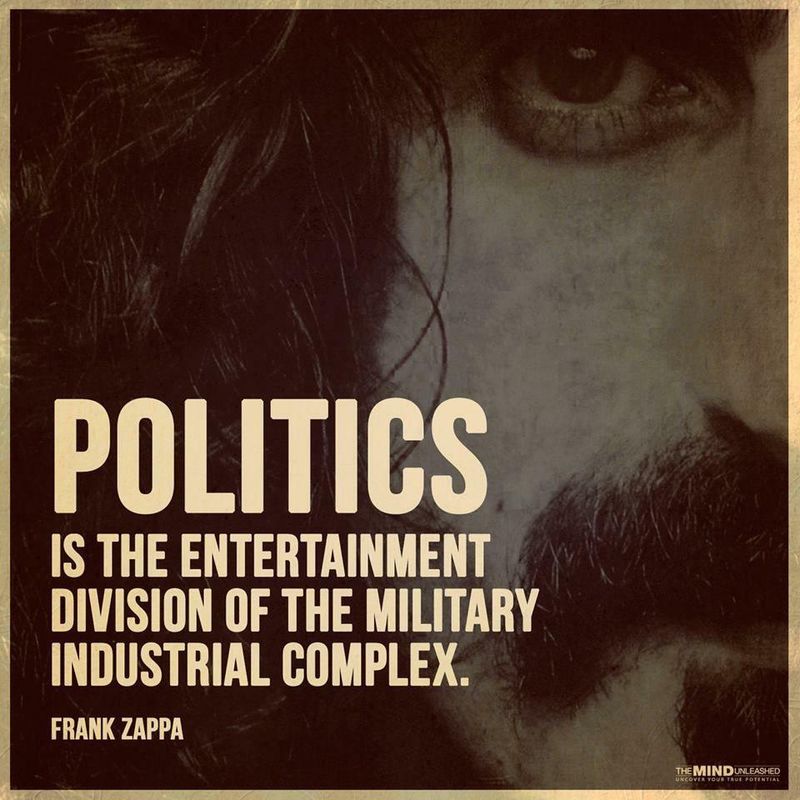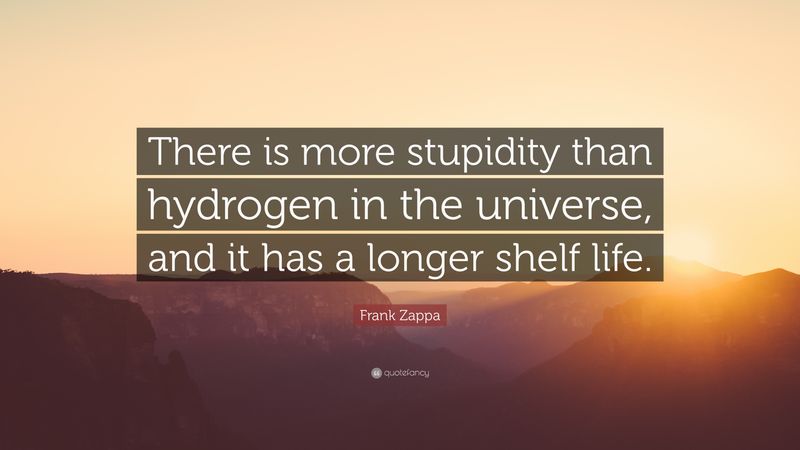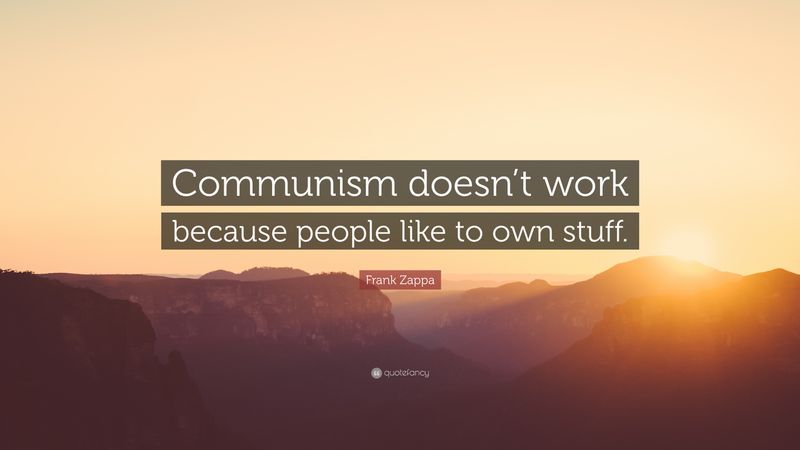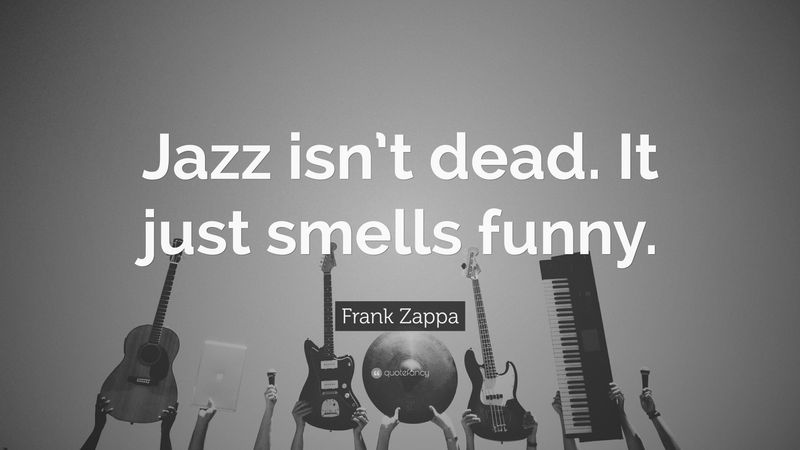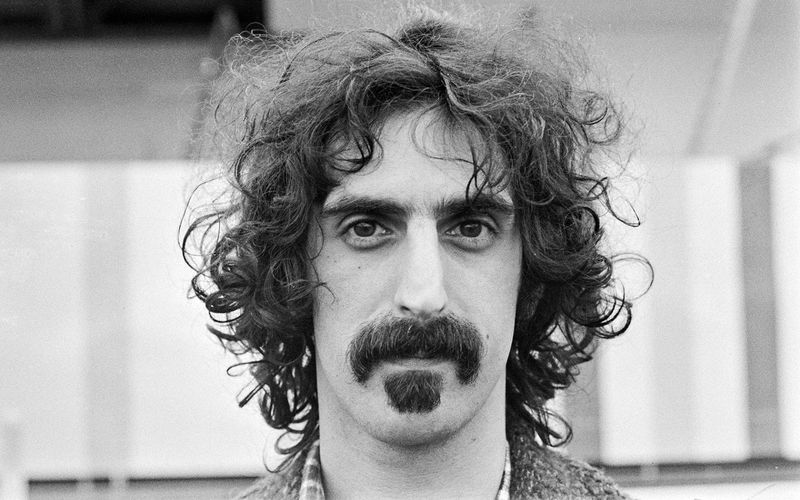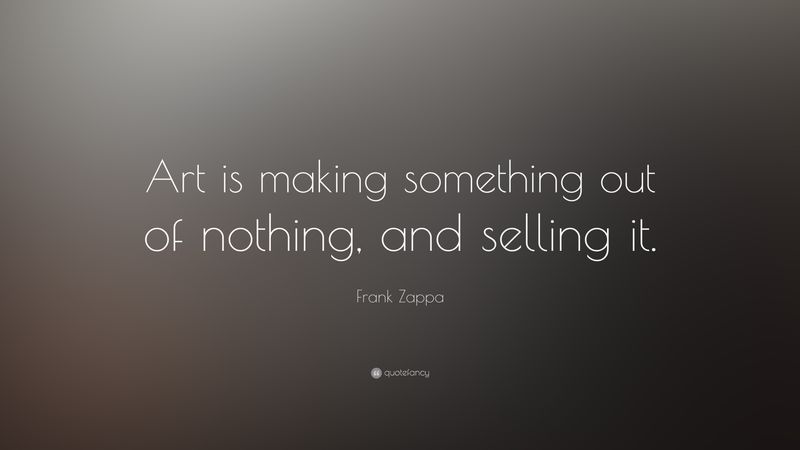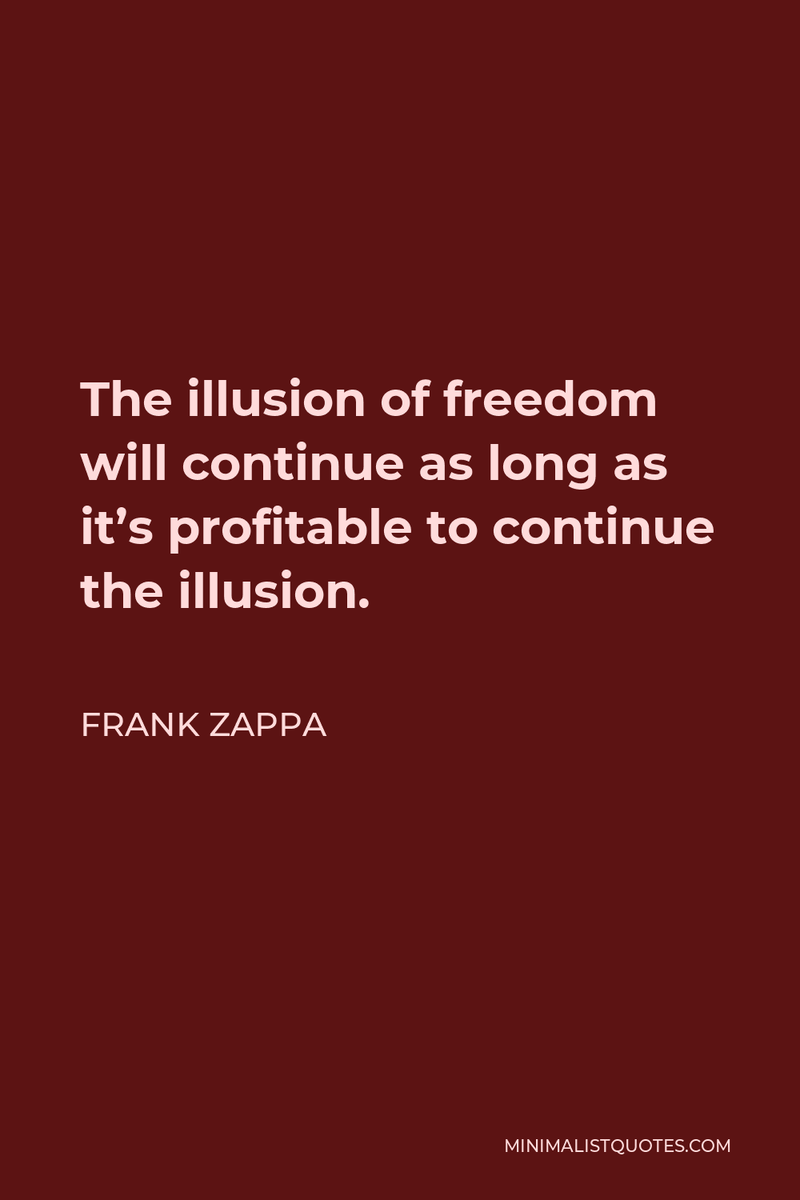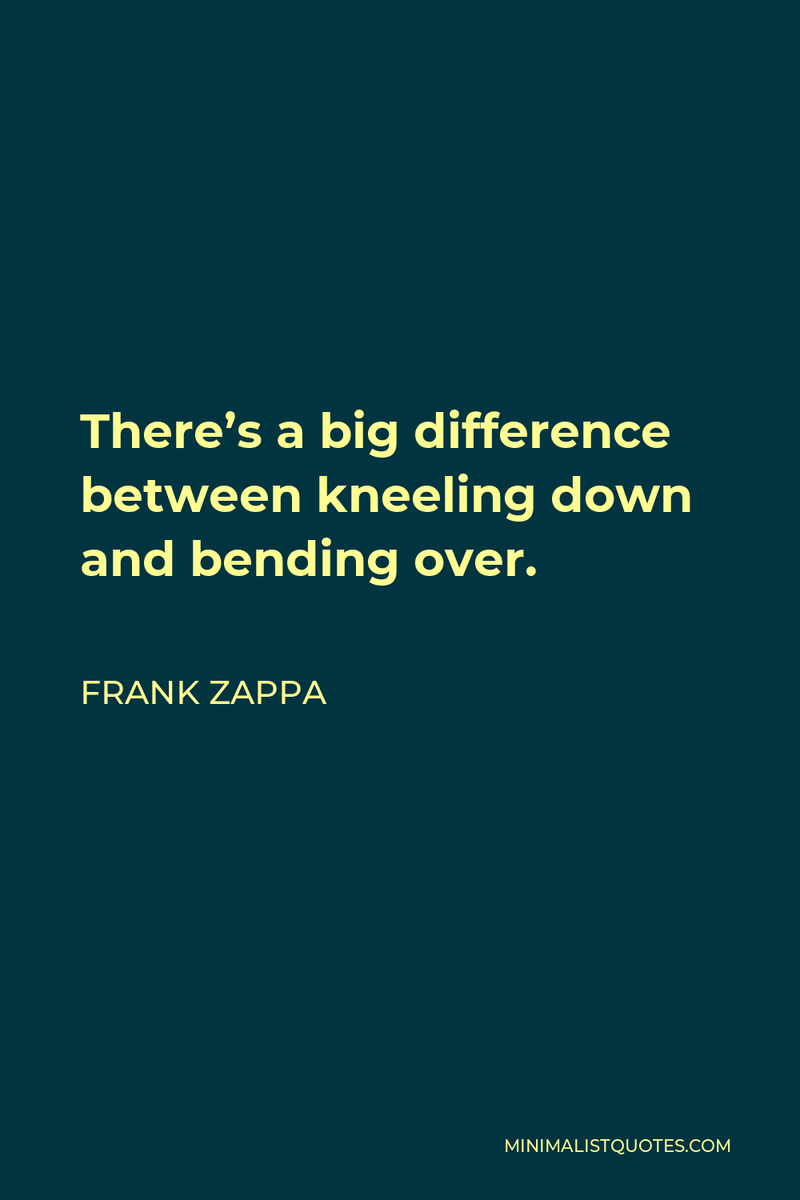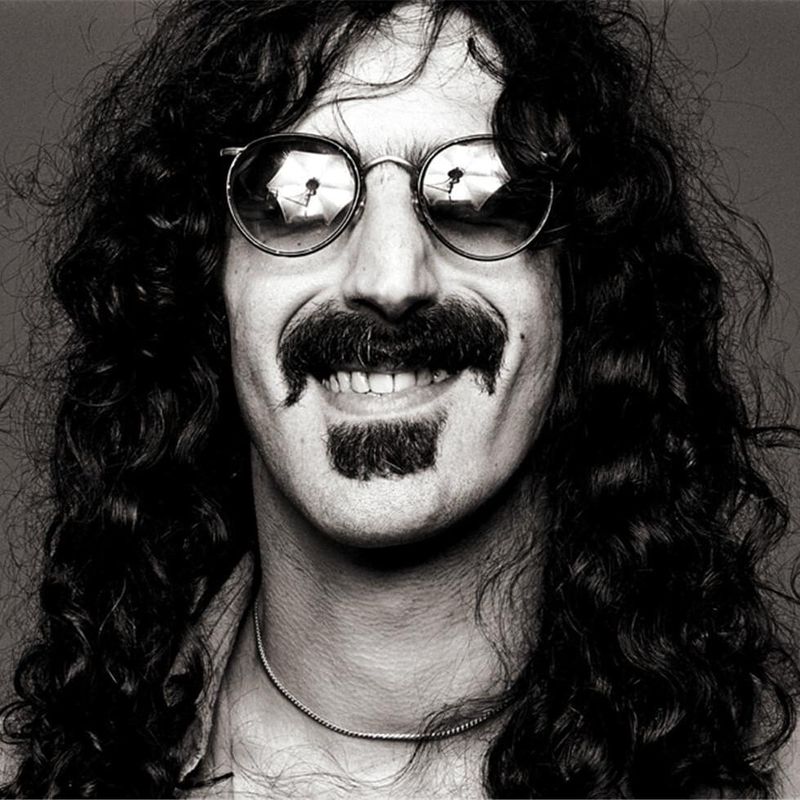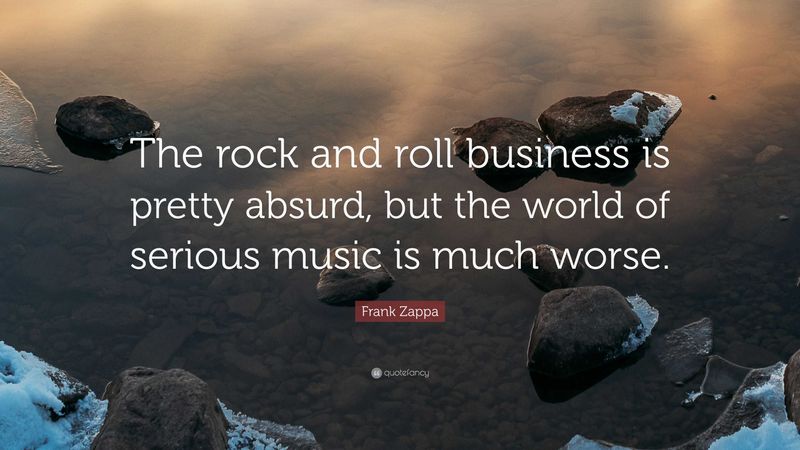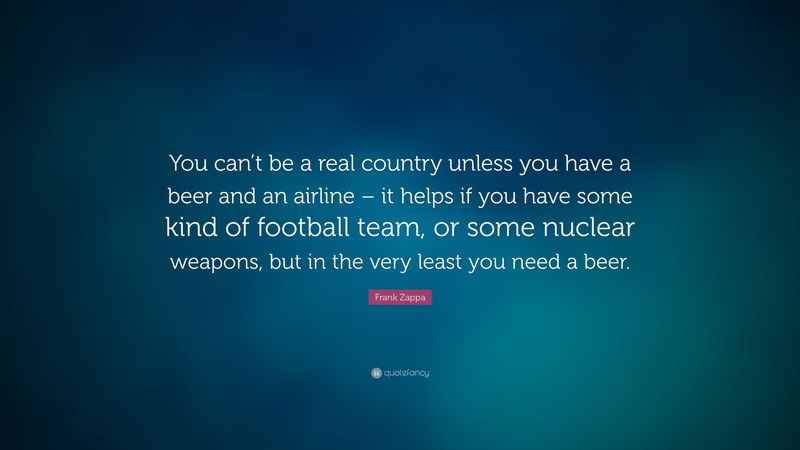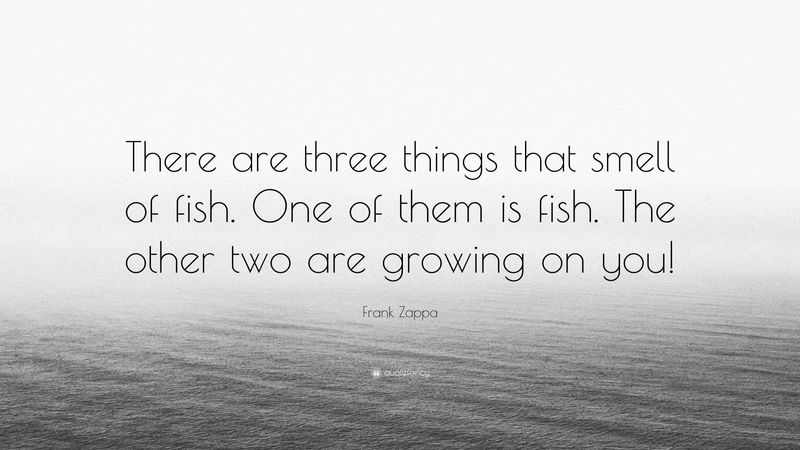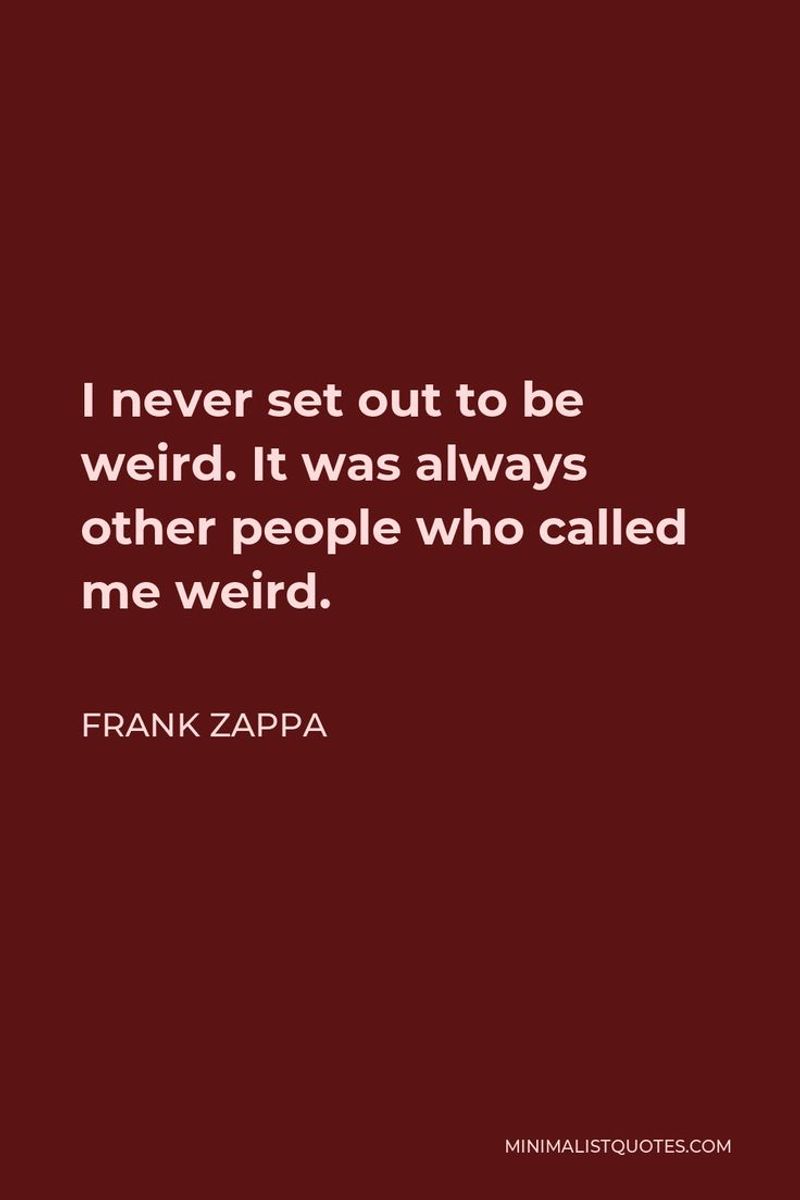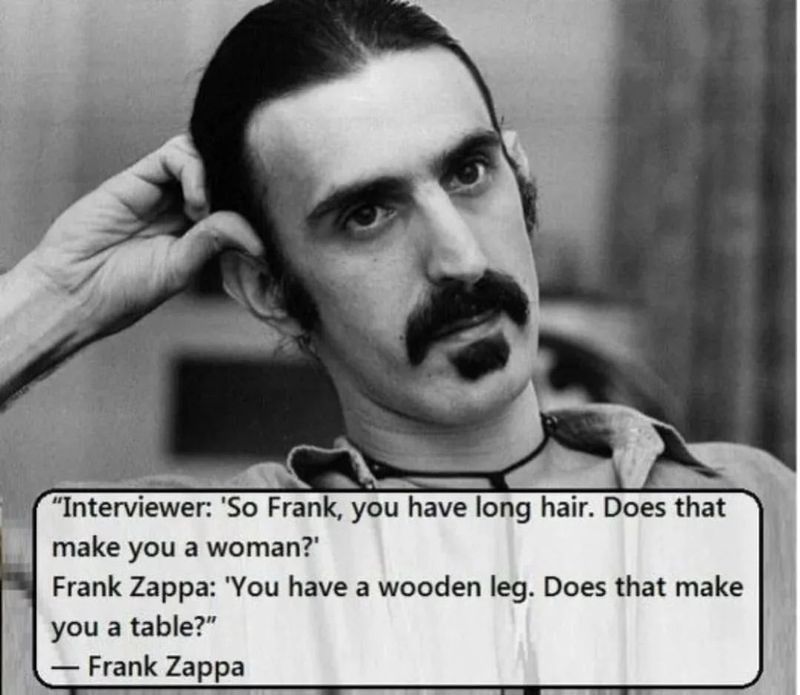Frank Zappa, an icon of music and thought, left us with words that transcend time. His wit and wisdom remain as relevant today as when he first spoke them.
From challenging norms to questioning the status quo, his quotes reflect a deep understanding of society, politics, and humanity. Here’s a delightful exploration of 19 of his most profound quotes, each with its unique flavor.
1. Without deviation from the norm, progress is not possible.
Frank Zappa knew the power of challenging the norm. Innovation doesn’t emerge from conformity; it’s born from those who dare to think differently. In a world often obsessed with staying within lines, Zappa’s words remind us that true progress is the result of deviation. It’s the rebels, the nonconformists, who push boundaries and lead us to new discoveries.
Embrace the weird, the unusual, for therein lies growth. In today’s world, where creativity is celebrated, Zappa’s belief still holds; without stepping away from the expected, we stifle innovation and halt our journey towards the future.
2. A mind is like a parachute. It doesn’t work if it is not open.
Zappa’s analogy of the mind as a parachute is both humorous and insightful. Just as a parachute is useless if it remains closed, so too is a mind that refuses to open. In the swirling chaos of modern life, being open-minded allows us to absorb new ideas, adapt to change, and embrace diversity.
This quote serves as a reminder that being receptive to different perspectives enriches our lives. Whether it’s trying a new cuisine or considering an opposing viewpoint, keeping our mental parachutes open ensures a rewarding and enlightened flight through life.
3. Government is the entertainment division of the military-industrial complex.
Zappa’s satirical take on government remains eerily relevant. By likening it to entertainment, he highlights the performative and often superficial nature of politics. In an era where political figures are treated as celebrities and policies are sold like blockbuster movies, Zappa’s critique resonates deeply.
His words invite us to question the motives and authenticity of those in power. By seeing through the theatrics, we can better understand the true driving forces behind political decisions. Zappa’s humor underscores a serious message: stay vigilant, for politics is as much about show as it is about substance.
4. The United States is a nation of laws, badly written and randomly enforced.
Zappa’s biting critique of the American legal system resonates with many. Laws, intended to maintain order, often seem confusing and inconsistently applied. In a country priding itself on justice, Zappa’s observation points to a deeper truth: the system is flawed. His words encourage us to scrutinize and question how laws are crafted and implemented.
By exposing the chaotic nature of legal frameworks, Zappa challenges us to strive for improvement. His humor masks a serious call to action: seek clarity, fairness, and consistency in the pursuit of justice for all citizens.
5. Politics is the entertainment branch of industry.
Long before social media turned politicians into influencers, Zappa saw the spectacle inherent in politics. By comparing it to entertainment, he underscores the showmanship that often overshadows serious discourse. Politicians, like performers, seek attention, ratings, and public favor. This perspective invites us to look beyond the glitz and glamour, to seek substance over style.
Behind the theatrics, real issues demand thoughtful consideration. Zappa’s quote encourages a discerning eye, reminding us that while politics may entertain, its impact is far from a mere show—it shapes the future we live in.
6. There is more stupidity than hydrogen in the universe, and it has a longer shelf life.
Zappa’s witty observation about stupidity highlights its pervasive and enduring nature. While hydrogen is the most abundant element, stupidity appears even more prevalent and persistent. His words serve as a humorous reminder of human folly, seen in repetitive mistakes and irrational behaviors. It’s a call to self-awareness, urging us to recognize and address our own limitations.
In a rapidly evolving world, Zappa’s wisdom encourages us to question, learn, and grow. By acknowledging our imperfections, we open doors to progress. His humor sparks reflection, making us laugh while urging introspection.
7. Communism doesn’t work because people like to own stuff.
Zappa’s straightforward take on communism cuts to the heart of human nature. His insight into our intrinsic desire for ownership challenges idealistic economic systems. By humorously pointing out our love for personal possessions, Zappa underscores a fundamental flaw in collective ownership models.
His words resonate today, as societies grapple with balance between communal support and individual rights. Zappa’s humor masks a profound truth: economic systems must align with human behavior to succeed. His quote invites us to ponder the complexities of ownership, urging us to appreciate the balance between personal freedom and communal responsibility.
8. Jazz is not dead, it just smells funny.
Zappa’s humorous take on jazz reflects his love for the genre while poking fun at its complexity. Jazz, known for its improvisation and depth, often feels inaccessible to newcomers. By saying it ‘smells funny,’ Zappa captures the enigmatic allure that confuses yet fascinates. His words remind us that great art often challenges perceptions and expectations.
Jazz endures, not because it’s simple, but because it’s layered and profound. Zappa’s playful critique invites exploration, urging us to embrace art’s intricacies. True appreciation grows from curiosity, and jazz’s mysterious charm continues to captivate those willing to listen closely.
9. Music is the only religion that delivers the goods.
Zappa’s declaration elevates music to a spiritual level, celebrating its universal power. Unlike traditional religions, music transcends boundaries, offering solace and connection without dogma. His words suggest that music, unlike rigid belief systems, consistently provides joy, inspiration, and catharsis. In a world divided by ideology, music unites, offering a common language of emotion.
Zappa’s insight invites us to embrace music’s transformative power, recognizing its role as a healer and motivator. Whether through a symphony or a rock ballad, music’s ability to ‘deliver the goods’ lies in its raw, unfiltered expression of the human spirit.
10. Art is making something out of nothing and selling it.
Zappa’s definition of art captures both its creativity and commercialism. In a world where value often hinges on marketability, art remains a unique intersection of imagination and commerce. His words highlight the artist’s ability to conjure beauty from the void, breathing life into ideas. While art’s essence is creation, its survival often depends on sales. Zappa’s witty observation reminds us of art’s dual nature, where inspiration meets industry. His quote encourages us to appreciate both the creative process and the entrepreneurial spirit that sustains it, celebrating art’s ability to enchant and endure within a commercial landscape.
11. The illusion of freedom will continue as long as it’s profitable to continue the illusion.
Zappa’s poignant remark on freedom challenges us to question perceived liberties. In a society where freedom is often commodified, his words reveal the profit-driven preservation of illusion. By recognizing the disparity between true freedom and its marketed version, we can better navigate societal constraints. His insight underscores the need for awareness, urging us to discern genuine liberty from its commercial facade. In a world where appearances often mask reality, Zappa’s wisdom encourages vigilance and critical thinking. The pursuit of authentic freedom requires understanding and dismantling the profitable illusions that obscure it, a task both daunting and necessary.
12. There’s a big difference between kneeling down and bending over.
Zappa’s metaphor distinguishes between respect and subservience, a distinction as relevant today as ever. Kneeling can signify honor, while bending over often implies surrender. By highlighting this difference, Zappa encourages us to examine our actions and intentions. His words challenge us to stand firm in our values, resisting pressures to compromise integrity. In relationships, workplaces, and society, understanding this distinction empowers us to navigate interactions with dignity and strength. Zappa’s humor underscores a serious message: true respect stems from mutual understanding, not coerced submission. By recognizing this, we foster connections rooted in genuine esteem and equality.
13. People who can’t write, write manuals.
Zappa’s humorous jab at instruction manuals captures the frustration of convoluted guides. Often filled with jargon and confusion, these documents seem crafted by those distanced from clarity. His words resonate with anyone who’s struggled through poorly written instructions. By critiquing this, Zappa highlights the importance of effective communication. Clear writing not only informs but also empowers, bridging gaps between intention and understanding. His observation challenges writers to prioritize clarity and accessibility. In a world increasingly reliant on information, Zappa’s wit underscores the vital role of good writing in making knowledge approachable and comprehensible for all.
14. The rock and roll business is pretty absurd, but the world of serious music is much worse.
Zappa’s dual critique of the music industry reflects his insider perspective. While rock and roll, with its flamboyant antics, often appears absurd, Zappa saw ‘serious’ music as even more so. His words reveal the pretensions and challenges inherent in both spheres. Rock’s commercialism contrasts with the elitism of classical music, yet both face similar artistic struggles. Zappa’s insight invites us to appreciate music’s diversity, understanding that absurdity exists across genres. By embracing this, we can enjoy the vibrancy and innovation each style offers. His humor reminds us that music, at its core, is about expression, regardless of its form.
15. You can’t be a real country unless you have a beer and an airline—it helps if you have some kind of football team or some nuclear weapons, but at the very least you need a beer.
Zappa’s satirical take on national identity humorously highlights the trivial benchmarks often associated with sovereignty. By suggesting that beer and airlines define a country, he critiques superficial measures of legitimacy. His words invite us to question what truly constitutes a nation. Is it cultural achievements, economic power, or something more profound? Zappa’s insight pokes fun at stereotypes, urging us to look beyond clichés. In a world where identity is multifaceted, his humor encourages deeper reflection on what binds people together. Through laughter, Zappa challenges us to redefine nationhood in terms of shared values and ideals.
16. Take the Kama Sutra. How many people died from the Kama Sutra compared to the Bible? Who wins?
Zappa’s provocative comparison between the Kama Sutra and the Bible underscores the impact of religious teachings. By highlighting the peaceful nature of the Kama Sutra against the historical violence associated with religious texts, he questions the consequences of doctrine. His words challenge us to evaluate the effects of belief systems on society. Through humor, Zappa invites reflection on love, war, and morality, encouraging a critical examination of traditions. His insight urges us to pursue teachings that promote peace and understanding over division and conflict. By questioning the status quo, Zappa advocates for a world guided by compassion and wisdom.
17. There are three things that smell of fish. One of them is fish. The other two are growing on you!
Zappa’s playful yet cryptic statement invites both laughter and thought. Known for his eccentric humor, this quote challenges us to interpret its meaning. By blending literal and metaphorical elements, Zappa encourages exploration beyond the obvious. What could represent the other ‘fishy’ things growing on you? Perhaps it’s complacency or unaddressed issues. His words remind us to stay vigilant, questioning what we accept without scrutiny. In typical Zappa fashion, humor serves as a vehicle for deeper reflection. His quote, bizarre yet intriguing, invites us to ponder—and laugh at—the complexities of perception and reality.
18. I never set out to be weird. It was always other people who called me weird.
Zappa’s assertion of his perceived ‘weirdness’ celebrates individuality. By attributing the label to others, he underscores the subjective nature of normalcy. In a world eager to categorize, Zappa’s words champion authenticity and self-expression. His insight encourages us to embrace our uniqueness, rejecting conformity. What others deem ‘weird’ often signifies originality and courage. Zappa’s perspective invites us to redefine ‘normal,’ appreciating diversity in thought and appearance. Through humor, he reminds us that societal labels often miss the richness of human experience. By celebrating ‘weirdness,’ we honor creativity and innovation, paving the way for a more inclusive world.
19. The more you can make people laugh, the more serious you can be.
Zappa’s insight into comedy highlights its dual role as entertainment and truth-teller. Laughter, he suggests, opens doors to serious discourse. By disarming with humor, we engage audiences in deeper reflection. Zappa’s words capture comedy’s ability to address complex issues, making them accessible and relatable. His perspective encourages the use of humor as a bridge, connecting people to ideas they might otherwise resist. In today’s world, where division often prevails, laughter unites, breaking barriers. By appreciating comedy’s potential, we harness its power to foster understanding and change. Zappa’s wisdom reminds us that humor, though light, carries profound weight.
